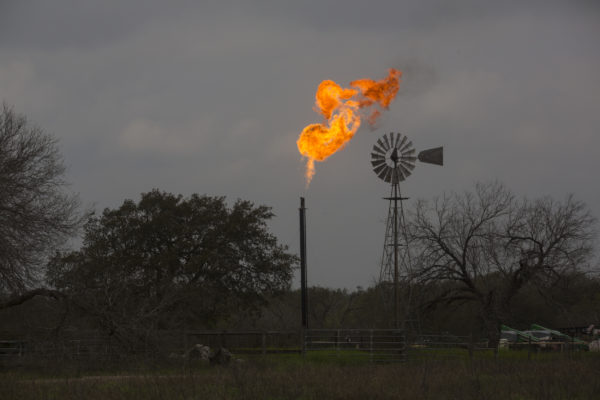Oil industry catches the breaks

I’m reading about… breaks for the oil industry and the green economy
The New York Times reports this morning on the coming implementation of a new rule in the US weakening rules on emissions of the potent greenhouse gas methane from drilling operations. It’s the latest Trump move to weaken rules during the pandemic. In April, the NYT reports, the E.P.A. weakened rules on the release of toxic chemicals from coal-fired power plants, loosened curbs on climate-warming tailpipe pollution and opted not to strengthen a regulation on industrial soot emissions that have been linked to respiratory diseases, including Covid-19. In July, President Trump unilaterally weakened one of the nation’s bedrock conservation laws, the National Environmental Policy Act, limiting public review of federal infrastructure projects in an effort to speed up the permitting process for freeways, power plants and pipelines.
The latest change eliminates federal requirements that oil and gas companies must install technology to detect and fix methane leaks from wells, pipelines and storage sites. The change – which could ensure more fracking operations in the US remain economic for smaller operators especially – comes as Bloomerg reports that Marathon Petroleum Corp. is poised to claim a $1.1 billion tax refund due to the coronavirus stimulus law enacted in March. The law particularly benefited oil companies that raked in record profits in 2018, only to be battered by this spring’s crash in crude prices and demand.
Over in the UK, as unemployment soars (BBC), the FT reports on the government’s efforts to spur the creation of hundreds of thousands of ‘green’ jobs. The problem is, we’ve heard this record before. “The government’s record on policies for decarbonisation and energy-efficient retrofit of housing since 2010 has been very poor,” said Noble Francis, economics director at the Construction Productions Association, a trade body, adding he took green job announcements with a “big pinch of salt”.
Mr Francis points to past policy failures such as a “Green Deal” unveiled by the coalition government in 2010 to create up to 250,000 green jobs and “overhaul” the energy efficiency of homes. He said the new green homes grant, which runs until March next year, would initially just pull in those already planning to carry out home improvements. At the same time, the paper reports, there is significant scope to go beyond the existing promises in the coming budget – generating employment in sectors such as renewable energy and replacing gas boilers.
Five things you need to know (really this time)
Helicopters rush to clean Mauritian oil spill: Helicopters were deployed to help with a major oil spill clean-up operation after a Nagashiki Shipping Co. tanker leaked fuel off the coast of Mauritius. Mauritian authorities on Friday declared an environmental emergency and Prime Minister Pravind Kumar Jugnauth said on Sunday that expert reports showed cracks continued to develop, with the risk of the ship collapsing entirely, Bloomberg reports.
Natural disasters hit China’s poor hardest: Bloomberg reports on how government measures to divert floodwaters away industrial areas to poorer, more rural, regions has caused devastation. “The less-developed regions will sacrifice for more social-economically-important cities or industrial regions when the floods threaten the latter,” said Ma Jun, director the Institute of Public and Environmental Affairs, “The poor regions are damaged worse from natural disasters and have more difficulties in developing. It becomes a vicious circle,” also Bloomberg.
Pesticides spur rapid decline of US bird species: Popular pesticides are causing bird species to decline at an alarming rate in the US, adding fuel to a 50-year downward trend in bird biodiversity, a new report has found.
Satellites record history of Antarctic melting: The data means statements that can now be made about exactly where and when the wastage has been occurring, and where also the meltwater has been going. This impacts our understanding of everything from the speed of climate change to precipitation patterns and the impact on the rest of the Antarctic ice sheet. Looking to the north instead of the south in another study the BBC also reports that the world’s peatlands will become a large source of greenhouse gases as temperatures rise this century. “The only way to limit the permafrost carbon feedback is to reduce global warming,” said Dr Hugelius. “Because the Arctic warms twice as fast as the rest of the globe, the higher warming pathways that we are on now are devastating for the permanently frozen parts of the globe.”
BP targets well to appraise heavy oil find in Brazil’s Campos basin: UK supermajor set to resume deep-water exploration drilling in Brazil despite a pledge to go greener, Upstream online reports. One interesting way to look at oil pledges to “go green” would be the energy value of the new – and in climate terms needless and damaging – oil and gas do they bring into production versus how much energy they create from renewable sources.

